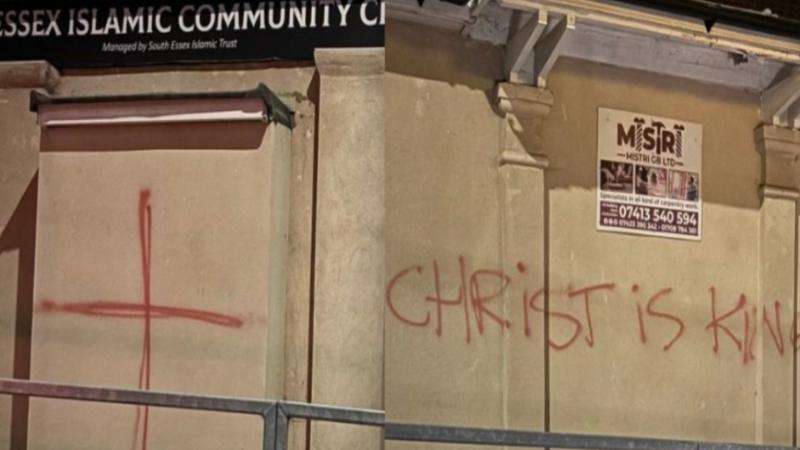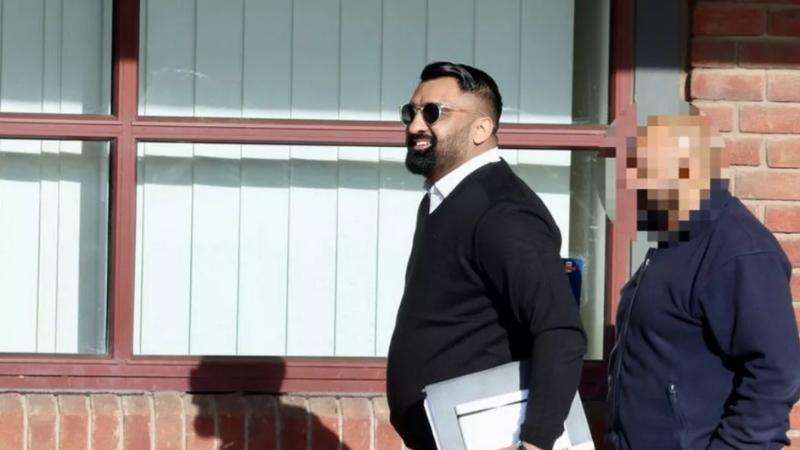In recent months, Britain's Muslim communities have faced a deeply unsettling rise in targeted attacks and harassment, prompting serious concerns about the resurgence of Islamophobia. From planned massacres to repeated acts of vandalism, a clear pattern of religiously motivated hate crimes has emerged, leaving many Muslims feeling vulnerable and unprotected.
Over the last 60 to 90 days alone, several disturbing incidents have come to light. In Greenock, Scotland, a teenager was sentenced to 10 years in custody for plotting a mass murder by setting fire to a local mosque, a plan he had meticulously crafted after infiltrating the community by pretending to be a convert. His manifesto and online activity revealed sympathies with neo-Nazism and far-right extremists like Anders Breivik, highlighting a growing threat from radicalized individuals.
Similar acts of hatred have been reported elsewhere. In Sheffield, an individual was convicted for repeatedly releasing wild rats outside a mosque, an act described by the anti-hate charity Tell MAMA as "highly dehumanising." In Nottingham, an elderly woman has been seen on camera shouting slurs and blocking vehicles outside a mosque for nearly two years. Meanwhile, in Scarborough, a teenager with firelighters was caught shouting abuse outside an Islamic centre.
These recent incidents are part of a broader, documented trend. Anti-Muslim hate crimes have been on a sharp rise, with reports from organizations like Tell MAMA and the Islamophobia Response Unit (IRU) confirming an unprecedented surge. Data from the IRU shows a massive 763% increase in Islamophobic incidents in the year following the October 2023 conflict in Gaza. The Muslim Council of Britain (MCB) reports that assaults surged by 73% in 2024, marking what its director calls the "most dangerous" time to be a Muslim in the UK.
So, why are British Muslims and their places of worship being targeted? The reasons are multifaceted and deeply rooted. Analysts point to a confluence of factors, including divisive political rhetoric, the rise of the far-right, the spillover effects of international conflicts, and a perceived lack of government action. Divisive language used by some politicians and media outlets, particularly surrounding issues like migration and the war in Gaza, is seen as directly contributing to a hostile environment.
This rhetoric often frames Muslims as "others" and national security threats, which emboldens those with extremist views. The internet and social media have been powerful tools for radicalization, spreading far-right extremist ideologies and mobilizing individuals to act on their hatred. The conflict in Gaza has been a significant driver of the recent spike, with Muslims being targeted for their perceived connection to Palestine. Despite the mounting evidence, there is a perception among Muslim communities that the government has not done enough to address Islamophobia at a systemic level.
Is a Lack of Unity Hindering the Muslim Response?
A common question that arises is why the British Muslim community has not presented a more unified, singular front against these attacks. While there are numerous organizations working on behalf of Muslims, the community is not a monolith, and various factors have historically prevented a single, overarching body from representing everyone.
The reasons for this disunity are complex and include sectarian and ethnic divisions. The British Muslim population is incredibly diverse, with origins from various countries and different schools of thought within Islam. This diversity can lead to internal differences and competition among organizations. There is also a multitude of national and local Muslim organizations, each with different political approaches, priorities, and funding sources, which can create a lack of a cohesive, unified voice. Some within the community argue that organizations have at times been more focused on political infighting rather than on the pressing issues affecting ordinary Muslims.
Additionally, the government's past and present dealings with certain Muslim organizations, as well as counter-terrorism policies like the Prevent strategy, have created a deep sense of mistrust. While the community may not be united under a single banner, various organizations are working to counter Islamophobia. Their collective efforts, from reporting hate crimes to engaging with policymakers and raising public awareness, are essential in the fight against the rising tide of anti-Muslim hatred.
_1.jpg)






.svg)


_1.jpg)